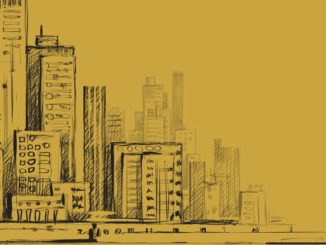
In 2007, after serving as a youth pastor in Mansfield, Ohio for seven years, my family and I moved to Quincy, Massachusetts, to start Life Community Church. Needless to say, there was a stark contrast between doing ministry in a rural community in North Central Ohio, and doing ministry in the America’s fourth largest city, the Boston metro area. Over the last decade, God has taught us so much about life and ministry in an urban context. While it certainly can be challenging, I have come to realize that some of the greatest challenges we face, are also our greatest opportunities.
Busy pace of life
For those who do not grow up in an urban area, one of the largest hurdles is the pace of life. The cost of living creates a greater work demand and in most cases multiple income homes. In short, people are busy and have a hard time seeing how they can add anything else to their already overwhelming schedule. While this is certainly challenging, it also creates more opportunity for incarnational ministry. God’s mission is an “all of life” calling; we have been sent by Jesus to move into our neighborhoods the same way Jesus moved into our lives; to make disciples in our everyday comings and goings. This happens at our jobs, in our homes and in our neighborhoods. While all Christians have been called to live this way, those who want to make disciples in an urban context don’t have any other choice. The result is a generation of disciples that see all of life as ministry.
Diverse people groups
Urban cities are also filled with a diverse group of people represented in multiple smaller communities within the city that we often call neighborhoods. The identity of these neighborhoods is shaped by the people that live there. The difference between these people groups could range anywhere from ethnic origin to socioeconomic status. For some, this kind of diversity can be difficult to navigate when you are trying to reach your city. However, while these differences certainly require a great deal of intentionality, they create more opportunity to better reflect the kingdom of God. The church is called to be its own neighborhood within the city, whose identity is shaped by Christ. This neighborhood of believers, called the church, gives the city around them a glimpse into what life in God’s kingdom looks like; a kingdom full of colorful people, with unique cultures and backgrounds. In other words, the diverse group of people that make up our world’s largest cities is the best context to show a divided world what it looks like to be reconciled to God and each other.
Crisis of human need
Another challenge that comes with urban ministry is the crisis of human need. When you live in a city that has hundreds of thousands or even millions of people, the amount of need can leave you feeling hopeless. Whether it’s homelessness, addiction, violence, or fatherlessness, where there are more people, there is more need. Every day, people die in our city. Every day, more children are being shipped off to a foster care system that is already overwhelmed. Every day, our shelters have to turn people away. All of this creates opportunities for the church to demonstrate just how powerful the gospel really is. In a city where hope seems lost, the gospel of Jesus Christ shines even brighter when one person is delivered from the chains of addiction, when a child is placed in a loving home, where the poor and marginalized are loved and valued. When you start to put all of these individual stories together, we begin to see the bigger picture of how God is using us to bring hope and restoration to the cities he has called us to.
Urban ministry is not easy, it requires us to break through the concrete before tilling the soil and planting seeds which takes time. The key is to see the challenges around you not as opposition to your ministry but as unique, God given opportunities for you to minister.
Urban ministry is not easy, it requires us to break through the concrete before tilling the soil and planting seeds which takes time. The key is to see the challenges around you not as opposition to your ministry but as unique, God given… Click To Tweet

